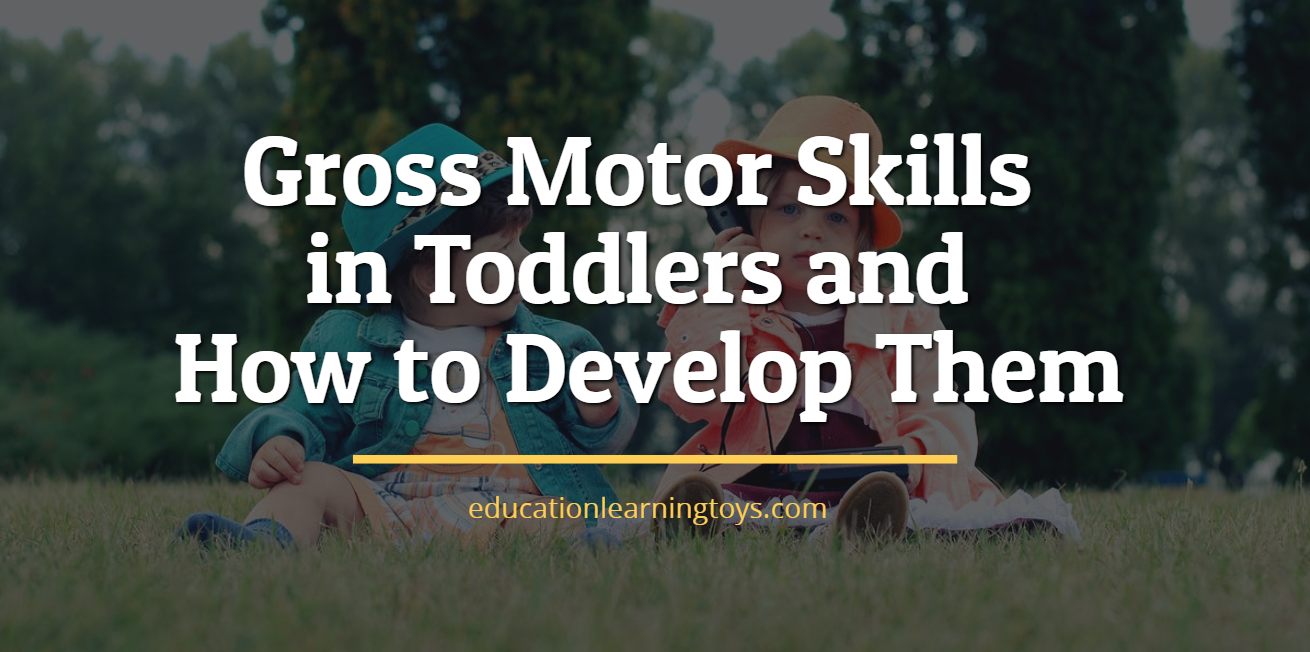The human body is highly impressive in how it develops. In the early years of childhood, there is so much development taking place each day. From the moment of conception, in fact, there are muscles and bones coming together to create a tiny human.
When a baby is born, these muscles and bones immediately come into action. They are propelled by movements of the gross motor skills. These are skills that control big movements of the baby. All gross motor movements are controlled by the core stabilising muscles of the body. For instance, the spine is largely in control of gross motor skills.
There are many things that we couldn’t do without gross motor skills. Taking a step forward, jumping up and down, standing upright, and other such movements all come back to gross motor skills. It is hard to imagine life without them!

So, just how do gross motor skills develop? At what point do they strengthen? And how can parents and educators ensure that children are getting the best chance to develop their gross motor skills?
Arguably, one of the most important stages of gross motor skill development is during the toddler phase of life. This article will explore how gross motor skills develop for toddlers and they can be engaged and developed through active play and other exercises.
What are gross motor skills and how do they develop in toddlers?
As mentioned, gross motor skills are the main muscle movements we do in order to get about. From walking to sitting upright to standing up, gross motor skills start in the core muscles and affect everything we do. As well as these actions, hand-eye coordination is also part of the gross motor skills.
For toddlers, gross motor skills enable them to better explore and get to know the world around them. Being able to use the leg muscles, back muscles, and full arm muscles enables toddlers to be able to walk, jump, play, and explore.
Gross motor skills are also essential for developing self-care and independence in toddlers. Although it can seem too early to be thinking about toddlers taking care of themselves, this is a key part of development. For instance, without gross motor skill development, toddlers can’t learn to sit at the dinner table, move around the school building, or be able to dress and undress themselves.

What foundations are needed for gross motor skills?
Now that we know how important gross motor skills are for toddlers and their future development, let’s take a look at some of the foundation blocks needed to develop them. Gross motor skills are much like building a tower – without a strong base, they won’t be able to reach their full potential.
Some things that toddlers need in order to progress and enhance their gross motor skills include:
- Muscle strength for force against resistance
- Muscle endurance to repeatedly exert force
- Motor planning in order to move muscles sequentially
- Motor learning to understand how to move muscles to get a certain result
- Sensory processing to recognize how to use muscles in certain situations and surroundings
- Body awareness to understand how different muscles and limbs move in a certain space
- Balance in order to maintain position or rotate
- Coordination to be able to integrate multiple movements at a time
It sounds like a lot of things are needed! The good news is that much of these foundations develop naturally as part of the human evolutionary process. There are also many activities that can be done with toddlers to promote strength and conditions of certain building blocks for gross motor skills.

What gross motor movements should toddlers be able to do?
Although there are certain targets for gross motor movements at certain ages, all children develop at individual paces. The toddler phase lasts for a long time so there is no rush to tick off all the milestones at once.
Here is a rough guide to some of the motor movements to expect at different stages of the toddler phase.
Between 12-18 months:
- Walking independently
- Attempting to run
- Kick a stationary ball
- Sit upright
- Throw underhand
Between 18 months – 2 years
- Walk up and down stairs with support
- Run with coordination
- Jump up and down, and forwards
- Throw a ball
- Kick a ball forwards
- Squat while playing
Between 2-2.5 years:
- Stand on tiptoes
- Jump from a block or bottom step
- Catch a large ball
- Start to ride a tricycle with feet on ground
Gross motor activities for toddlers
In order to enhance and encourage gross motor skills to develop most effectively, there are many activities that toddlers can do. These can be in the form of active games both indoors and outdoors or through sensory activities. Since gross motor skills encompass such a large part of development, it is good to do a range of these types of activities each day with a toddler.
Some fun and easy activities include:
- Hopscotch to promote coordination and balance
- Simon Says to engage reflexes and coordination
- Walking and climbing on unstable surfaces for balance
- Catching and throwing for gross arm movements
- Playing on the playground with swinging and climbing
- Swimming and trying out different strokes
- Building blocks for precise motor development
- Crawling through an obstacle course
- Trying a sensory scavenger hunt with a blindfold to rely more on motor movements than seeing
- Moving on stairs and lifting things up and down
- Jumping and climbing through hoops or around cones

Conclusion
Gross motor skills are the foundation for so many movements. For toddlers, there are endless chances to develop gross motor skills and encourage positive movements. Having a range of gross motor activities each day and focusing on different parts of the body will help a toddler to grow and develop strong muscle movements for a positive future.




